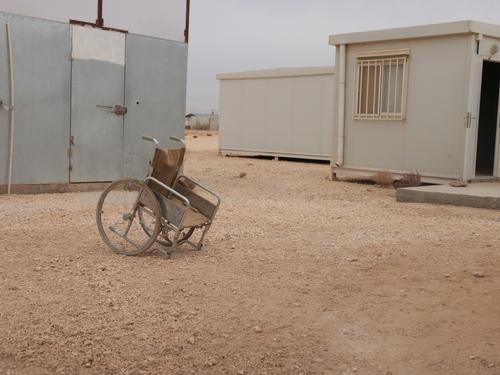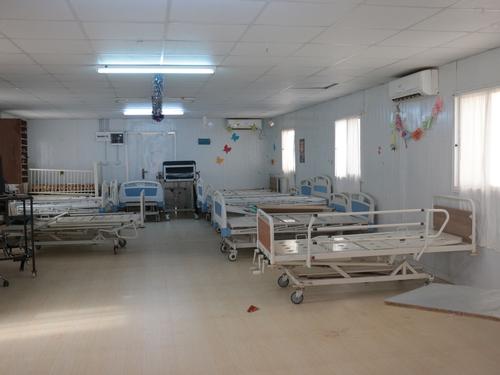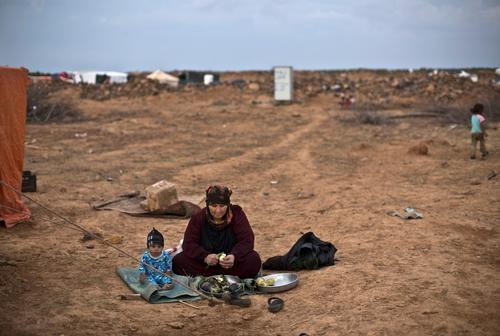Walid Shbat, 30, lost his leg after being injured by a barrel bomb in Dara’a, southern Syria. Medical treatment in neighbouring Jordan restored his health and his sense of optimism.
Walid Shbat, 30, lost his leg after being injured by a barrel bomb in Dara’a, southern Syria. Medical treatment in neighbouring Jordan restored his health and his sense of optimism.
Thursday 3 December 2015 is a day that will be forever carved in my memory. That was the day I was gravely injured - my right thigh bone was fractured and it led to my leg being amputated.
On that Thursday, I learned that my younger brother had been seriously injured by a projectile, so I hurried to the field hospital where he had been taken. Ten minutes after I arrived, my brother was carried into a waiting vehicle to be transported to Jordan, as his injuries were complex and medical capacity in the area was limited.
As I stood next to the vehicle, a helicopter hovered in the sky above my head. Moments later barrel bombs of hate crashed to the ground. The air was filled with shrapnel and one piece penetrated my leg and lodged there, fracturing my right femur.
The doctors in the field hospital were unable to treat my injury, so I was transferred to another field hospital nearby. I remained there a all night, with excruciating pain for company. Painkillers could not silence the pain, which extended across every inch of my body.
The next day, the resident doctor decided to transfer me to Jordan, as medical staff inside Syria were unable to treat me amid the raging, indiscriminate war.
One hour later, I reached the Jordanian border, and from there an ambulance transported me to Ramtha hospital. In the operating theatre, the medical team tirelessly attempted to save my leg, but they could not do it. On the second day, they tried again, but with the same result. So, with all hope gone, it was decided that my leg should be amputated.
After the operation, I stayed in the hospital for three months, as my condition required follow-up, my wounds needed to be cleaned and my dressings changed. Afterwards, I was transferred to MSF's clinic in Zaatari camp.
I noticed a great change – a shift in my psychological as well as my physical situation – in Zaatari. I found the familial atmosphere that I had longed for. In Zaatari, I had my space and my freedom, and I reunited with my brother and with the new friends I had made during my stay in Ramtha.
The clinic and its medical staff played a major role in the improvements I felt. There were many activities in the clinic that calmed the feelings of exile inside me, and the cruelty and severity of my injury.
My days went by speedily, filled with various activities: making new friends; browsing the internet; corresponding with my family and friends back home in beloved Syria; visiting relatives and friends who were living in Zaatari camp; and shopping for essentials.
Soon the day arrived when I had completed my medical treatment and received my prosthesis. It was time for me to go home to Syria.
Despite all that has happened – the cold, brutal injury and the loss of my leg – my time in Zaatari clinic had a major impact on my life. It showed me what good medical care looks like and it provided me with psychological support and boosted my morale. All the staff treated me with respect. I am not exaggerating when I say that the place and the people are wonderful.
I consider myself luckier than a lot of other Syrians who have suffered serious injuries but have been unable to reach Jordan for treatment. In Syria, under current conditions, it is impossible to get the kind of medical treatment available in Jordan – particularly since there is a barbaric and systematic targeting of hospitals, and a lack of medical expertise from the country.
Now I am back living in my country once again, looking for a job and adapting to my new condition. Although it is very difficult, life goes on.
Thank you Jordan and thank you Zaatari clinic. You have left a mark that will stay with me for years to come.





